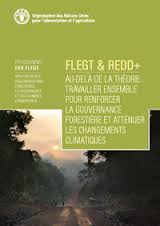Gestion foncière durable
AGROVOC URI:
The Fall and Rise Again of Plantations in Tropical Asia: History Repeated?
The type of agrarian structure employed to produce tropical commodities affects many dimensions of land use, such as ownership inequality, overlapping land rights and conflicts, and land use changes. I conduct a literature review of historical changes in agrarian structures of commodities grown on the upland frontier of mainland Southeast and South Asia, using a case study approach, of tea, rubber, oil palm and cassava.
Agribusiness Models for Inclusive Growth in Myanmar: Diagnosis and Ways Forward
Successful development experiences have demonstrated the greater efficiency achieved with a growth strategy based on small and medium-scale farmers (SMFs). This study is sought to identify potential agribusiness models for enhancing inclusive growth through NGOs partnerships with SMFs in Myanmar. The paper illustrates that agricultural sector in Myanmar is characterised by already high land inequality and landlessness, and low productivity of most SMFs.
Background Paper No. 3 - Rural Finance in Myanmar
ABSTRACTED FROM THE EXECUTIVE SUMMARY: Farmer indebtedness is a serious problem in Myanmar and the number of landless farm households is increasing. Working capital finance for farmers is exceedingly expensive except for the rather small amounts provided by the MADB and bad harvests can mean that farmers need to sell their land to satisfy loan repayments, becoming casual laborers instead. There is a serious lack of financing for equipment.
A Strategic Agricultural Sector and Food Security Diagnostic for Myanmar
ABSTRACTED FROM THE INTRODUCTION: This report provides a strategic assessment of the key issues, opportunities, constraints and choices facing Myanmar’s agricultural sector. Discussion focuses on pathways that will permit agriculture to contribute meaningfully to broad-based improvements in purchasing power and food security for the country’s many landless and vulnerable households. In doing so, it aims to assist public and private stakeholders who will be making the key investment and policy decisions governing future agricultural and food security trajectories in Myanmar.
Cambodian Agriculture: Adaptation to Climate Change Impact
Cambodia is highly dependent on agriculture: the agricultural sector is responsible for more than 30 percent of GDP and provides employment for more than 70 percent of people who are employed (ADB 2011). Given such high dependence on agriculture, an important question is, "How will Cambodia be affected by climate change, especially the agricultural sector?" Climate change, by definition, will alter temperature and rainfall patterns.
Rapid Appraisal of Cross-Border Agricultural Business along NSEC: Focus on China-Laos Border
ABSTRACTED FROM THE EXECUTIVE SUMMARY: The key findings of this field visit identified two main types of agricultural investments in northern Laos. One is the government-initiated agricultural cooperation program, in par-ticular the Alternative Development Scheme aka Opium Substation Development Scheme supported by Chinese government. The other is individual small-scale contract farming investments by Chinese businessmen. Current and potential issues related to these agricultural investments were also examined, including border passings and cus-tom clearance procedures.
Does Forest Devolution Benefit the Upland Poor? An Ethnography of Forest Access and Control in Vietnam
In Vietnam, forest devolution policies were implemented in the early 1990’s under which the government transferred management power over large areas of forested land previously controlled by the state forest enterprises or local authorities to local households. The government believes that implementing devolution policies would improve local livelihoods for the upland poor and stabilize forest conditions to increase forest cover.
‘Voluntary’ Migration in Lao People’s Democratic Republic
This paper is part of a collection of five policy briefs was commissioned by the World Bank for the 2009 World Development Report Reshaping Economic Geography. Through relocation policies, the Government of Lao PDR seeks to transform what it considers to be a traditional, rural economy into a modernised market-oriented system by eradicating shifting cultivation, changing the way that land is allocated and by reaching communities.
Cambodia Human Development Report 2007: Expanding Choices for Rural People
Although Cambodia has made significant progress in improving human well-being, poverty in rural areas persists. This Human Development Report for Cambodia assesses the state of rural livelihoods and their relationship with natural resources. It describes the status of human development at the regional and provincial levels, and distinguishes high performance areas from those which require more attention.
Cromatografia de suelos en el Curso de agricultura sostenible
EL Curso de Agricultura sostenible y Seguridad Alimentaria es el primero de tres que desarrolló SEMTA, Servicios Múltiples de Tecnología Aplicadas. El video recupera reflexiones sobre el estudio de suelos, explicando paso a paso cómo desarrollar una cromatografía. El IPDRS participó de la actividad como parte de sus acciones en red.





